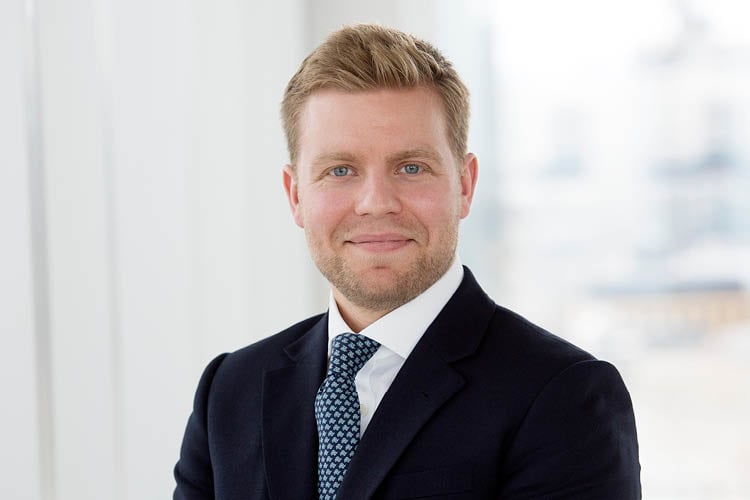Understanding sustainability risks and opportunities
What you need to know
- High-quality companies are better prepared for sustainability risks and opportunities
- Sustainability is fundamentally a long-term investment issue for us
- Decisions on sustainability factors are embedded into our approach
- Our long-term thinking and active ownership help us encourage positive change

We live in disruptive times. Disruption is nothing new, of course, but the speed with which change occurs in today's world can catch businesses and investors off guard if they're unprepared.
There is a famous quote often attributed to naturalist Charles Darwin1 : ‘It is not the strongest of the species that survives… it is the one most adaptable to change.’
The same can be said for companies. Those that adapt quickly to the shifting sands of the world around us are the ones most likely to survive and thrive. They evolve where others stagnate.
Companies can also play a crucial role in shaping our world. Businesses produce most of what we use or consume each day, from the clothes we wear and the food on our tables to the technologies that make our lives easier. Every company has an impact on the planet and society.
As a result, our decisions as professional investors can make a real difference. What we choose to include in portfolios decides the risks and opportunities we are exposed to, as well as determining the outcomes we can have some influence over.
We recognise this responsibility and aim to invest to preserve and grow the wealth of our clients across multiple generations, while also seeking to protect the environment and communities we all live in.
With this in mind, we'd like to explain our approach to sustainability, and describe how the companies that we invest in are both adapting to change and shaping a more sustainable future.
Adapting to sustainability challenges
At Rothschild & Co, we believe companies with resilient business models and sustainable business practices are more likely to perform well over the long term.
This is important because when we invest, we do so with the intention of holding that investment for many years. So, it's essential to recognise the real-world challenges that companies face and how successfully they are adapting to them.
Within this wider context, sustainability is – and always has been – a fundamental investment issue for us. Environmental, social and governance (ESG) factors pose risks and opportunities, which must be carefully considered as part of any prudent investment process.
Let's start with the risks. Whether because of political disruption, new regulations or evolving consumer attitudes, there is often no shortage of sustainability risks to consider.
History is replete with examples of companies damaging their market value and reputation because they failed to effectively manage sustainability issues. Mining companies Vale and BHP and their joint venture Samarco were recently ordered to pay 47.6 billion reais (£7.5 billion) in damages for a 2015 dam burst in Brazil. The incident caused a mudslide that killed 19 people and severely polluted the Rio Doce River.
As well as the environmental cost, incidents of this nature can also translate into financial damage, thanks to fines, increased compliance costs and consumer boycotts.
Sustainability considerations are therefore embedded into our investment approach to evaluate these risks, and we use a combination of quantitative and qualitative assessments to gain a more holistic view of how a business is performing.2
However, many of the circumstances that give rise to risk also present lucrative opportunities for businesses. For example, businesses offering products with stronger sustainability characteristics, or that demonstrate more sustainable supply chains, may see increased demand for their products or be able to price them at a premium.
Our New Court strategy invests in companies that are adapting to sustainability risks and opportunities in this broader sense.
All investments carry some level of risk, including the potential loss of money invested.
It is not the strongest of the species that survives… it is the one most adaptable to change."
In focus: Ryanair
The aviation industry is responsible for 2-4% of global emissions.3 With demand for air travel expected to double between now and 20404 , this share could grow further as other industries decarbonise.
Despite the clear environmental impact, flying remains the most convenient option for travelling long distances. Airlines also provide a range of social and economic benefits by connecting people through international business and tourism.
These nuances create grey areas when investing, so airlines require a greater level of scrutiny from us before we will invest. As part of our research, we will consider an airline's:
- Emissions reduction strategy
- Emissions per passenger-kilometre flown
- Investments in better planes and alternative fuels
Ryanair, which has been in our portfolios since 2011, has made encouraging strides in these areas.
For instance, the company continues to invest heavily in updating its fleet, including the $40 billion purchase of 300 new Boeing 737-MAX-10 aircraft in 2023.5 These planes have 21% more seats, are 20% more fuel-efficient and 50% less noisy than its existing B737-NGs.
The airline also teamed up with Trinity College Dublin to launch the Ryanair Sustainable Aviation Research Centre in 2021. The centre is conducting research into sustainable aviation fuels, zero-carbon aircraft propulsion systems and noise mapping.6
Shaping a sustainable future
There are other sustainability opportunities to consider beyond adapting to market changes. The companies that we are most interested in are usually 'best in class' within their industry, and some are actively pioneering innovative solutions to environmental and social problems.
Indeed, our Exbury strategy focuses specifically on the climate crisis and identifies businesses that are positively shaping our world by enabling the ‘net zero’ global transition.
Our goal is wealth preservation and growth in real terms over multiple generations. Our Exbury strategy is no exception, but it also has an additional focus of investing in what we call 'enablers'.
Enablers are investments that our research shows are enabling the goals of the Paris Agreement and helping the world transition to lower-carbon economies – a transition that we believe represents a unique multi-decade investment opportunity.
Take chemicals company Sika, which is one of our enablers. It makes various products that are used in concrete, such as admixtures and additives.
Our built environment is a major driver of global carbon emissions. There are many aspects to this, spanning direct emissions from heating apparatus, through to emissions associated with their electricity consumption, and those tied to the production of materials such as steel and cement. In total, buildings operations and construction emissions account for more than one-third of global energy-related emissions.7
More specifically, Sika is enabling the low-carbon transition in three key ways:
- Its admixtures reduce the CO2 intensity of cement
- The company has developed an innovative way to recycle concrete
- Sika products improve the energy efficiency of the structures they are used in
As investors, we also believe in taking a proactive approach to shaping a more sustainable future and creating better returns for our clients.
One of the most effective and meaningful ways we do this is through our long-term active ownership. We build strong, enduring relationships with companies and their management teams, which can help us influence their behaviour.
Our goal is to encourage changes that will lead to more sustainable business practices.
The companies and funds we own don't typically have significant sustainability issues because this would have naturally precluded our investment in the first place. No company is perfect, however, so we use our influence to try and encourage companies from 'good' to 'great' on the issues that are most relevant to them.
Our role is to build resilient portfolios and to become trusted advisers to our clients. In doing so, it is our ambition to be long partners to the companies we invest in.
Active ownership gives us a seat at the table, and as the American philosopher Eric Hoffer once said: 'The only way to predict the future is to have power to shape the future.'
And while we don't necessarily put too much stock in predicting the future, our investment approach enables us to identify the companies that we believe are on the right track.
All investments carry some level of risk, including the potential loss of money invested.
Ready to begin your journey with us?
Citations
[1] The quote can actually be traced back to a professor who was paraphrasing Darwin's work in a lecture to students.
[2] To learn more about how we assess companies and navigate sustainability's grey areas please read our previous article 'What sustainable investing really looks like'
[3] Climate change and flying: what share of global CO2 emissions come from aviation?, Our World in Data, 22 October 2020
[4] Global Outlook for Air Transport, International Air Transport Association, June 2023
[5] Ryanair orders 300 Boeing 737-Max-10 aircraft worth $40bn, Ryanair, 9 May 2023
[6] Ryanair Sustainable Aviation Research Centre, Trinity College Dublin
[7] Buildings, International Energy Agency
Although the information and data herein are obtained from sources believed to be reliable, no representation or warranty, expressed or implied, is or will be made and, save in the case of fraud, no responsibility or liability is or will be accepted by Rothschild & Co Wealth Management UK Limited as to or in relation to the fairness, accuracy or completeness of this document or the information forming the basis of this document or for any reliance placed on this document by any person whatsoever. In particular, no representation or warranty is given as to the achievement or reasonableness of any future projections, targets, estimates or forecasts contained in this document. Furthermore, all opinions and data used in this document are subject to change without prior notice.





